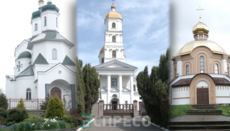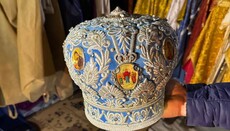Bohdan: The decision to transfer to OCU often made by territorial community

According to Bohdan, RMAs have become more thorough in checking the process of transition from the UOC to the OCU.
The head of the State Ethnopolitics Committee Olena Bohdan said that when transferring to the OCU, the decision is often made by the territorial community rather than the religious one, reports fakty.com.ua
"Since 2019, having received from Ecumenical Patriarch Bartholomew the Tomos of autocephaly, we had the OCU, since then the issue of the transition of UOC communities to the OCU is quite often accompanied by disputes and scandals... Are there often situations when the UOC believers decided to become believers of the OCU? If we look at the trend after the first upsurge (after receiving the Tomos – Ed.), now it does not happen so often. A number of these registrations are now being challenged, and this is an incredibly painful topic today," Bogdan told us.
Bohdan added that in a number of situations there has been an identification of the concepts of "local community" and "religious community" and cited examples where villagers, who are not parishioners of a UOC church, have organized a territorial community meeting and transferred churches to the OCU.
"At such meetings, they simply declare: we are Orthodox, and we believe that in our territorial community there will be only the OCU. And then they submit the relevant documents and protocols to the regional military administration (RMA)," she added.
"Now the RMAs are already taking a closer look and trying to check carefully: Is it still the decision of the parish or the local territorial community? The decision can only be made by the parish. Freedom of worship implies that each religious community decides what religious community it wants to belong to," the head of the State Ethnopolitics Committee said.
According to her, the RMAs informed the DSS of the registration of the change of subordination of 468 UOC communities to the OCU in 2022. The UOC does not agree with most of these registrations.
As earlier reported, Bohdan said that the clerics against whom cases have been initiated are less than 1% of the entire UOC.





